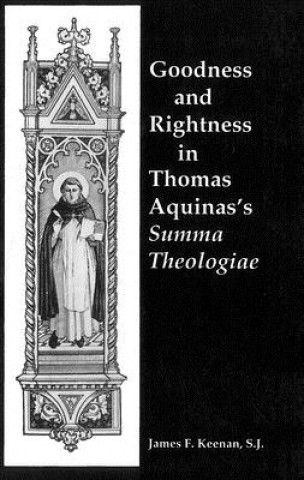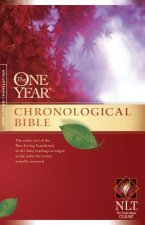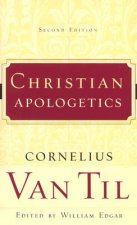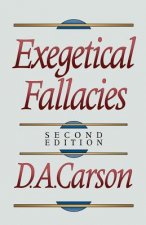
Code: 04751560
Goodness and Rightness in Thomas Aquinas's Summa Theologiae
by James F. Keenan
This appraisal of two of the most fundamental terms in the moral language of Thomas Aquinas draws on the contemporary moral distinction between the goodness of a person and the rightness of a person's living. Keenan thus finds tha ... more
- Language:
 English
English - Binding: Paperback
- Number of pages: 224
Publisher: Georgetown University Press, 1992
- More about this

271.08 zł
Availability:
50/50 We think title might be available. Upon your order we will do our best to get it within 6 weeks.
We think title might be available. Upon your order we will do our best to get it within 6 weeks.We search the world
Give this book as a present today
- Order book and choose Gift Order.
- We will send you book gift voucher at once. You can give it out to anyone.
- Book will be send to donee, nothing more to care about.
Availability alert
Enter your e-mail address and once book will be available,
we will send you a message. It's that simple.
More about Goodness and Rightness in Thomas Aquinas's Summa Theologiae
You get 158 loyalty points
 Book synopsis
Book synopsis
This appraisal of two of the most fundamental terms in the moral language of Thomas Aquinas draws on the contemporary moral distinction between the goodness of a person and the rightness of a person's living. Keenan thus finds that Aquinas' earlier writings do not permit the possibility of such a distinction. But in his mature works, specifically "The Summa Theologiae", Thomas describes the human act of moral intentionality, and even the virtues in a way analogous to our use of the term moral rightness. To Thomas, only the virtue of charity expresses moral goodness. And, although Thomas describes vices and sin as wrong conduct, he never really develops a description for moral badness. Keenan compels us to carefully examine Thomas' central moral concepts and to measure them against contemporary standards for meaning and correctness. As a result, any student of Thomas will find here a forceful argument that his notion of the good is considerably different from ours. Similarly, ethicists and moral theologians will find in the Thomas presented here a consistent-virtue ethicist concerned with descriptions for right living. Any student of theology will also find here a Thomas whose critical and concrete thinking enabled him to develop and even abandon earlier positions as his comprehension of the Good evolved. This analysis prompts a re-examination of our own concepts. Measuring Thomas' standards against our own, Keenan obliges us to ask whether we sufficiently understand rightness and moral intentionality. He also asks whether we correctly describe what it means to will or to desire something. He further questions whether we have surrendered our understanding of the virtues to the voluntarism and subjectivism which Thomas relentlessly critiqued. This historically sophisticated reading of "The Summa Thologiae" both allows Thomas to speak again as he once did, and affords us the chance to evaluate the way we describe ourselves and one another as being good and living rightly.
 Book details
Book details
Book category Books in English Humanities Religion & beliefs Christianity
271.08 zł
- Full title: Goodness and Rightness in Thomas Aquinas's Summa Theologiae
- Author: James F. Keenan
- Language:
 English
English - Binding: Paperback
- Number of pages: 224
- EAN: 9780878405305
- ISBN: 0878405305
- ID: 04751560
- Publisher: Georgetown University Press
- Weight: 367 g
- Dimensions: 229 × 152 × 15 mm
- Date of publishing: 01. November 1992
Trending among others
-

The Holy Bible - King James Version
43.41 zł -15 % -

Orthodox Study Bible, Hardcover
205.70 zł -4 % -

Prayer Book
133.57 zł -

Yoga of Jesus
65.57 zł -4 % -

NRSV, Catholic Bible, Gift Edition, Leathersoft, White, Comfort Print
145.56 zł -5 % -

KJV Holy Bible, Personal Size Giant Print Reference Bible, Burgundy Leather-Look, 43,000 Cross References, Red Letter, Comfort Print: King James Versi
85.62 zł -5 % -

Jesus Calling, Pink Leathersoft, with Scripture References
70.41 zł -23 % -

Feeling is the Secret
34.34 zł -

KJV, Value Thinline Bible, Compact, Leathersoft, Brown, Red Letter, Comfort Print
51.87 zł -23 % -

KJV, Holy Bible, Larger Print, Paperback, Comfort Print
29.20 zł -23 % -

Holy Bible
114.83 zł -9 % -

Second Coming of Christ
265.74 zł -4 % -

Book of Enoch
40.49 zł -23 % -

NKJV, Lighting the Way Home Family Bible, Hardcover, Red Letter Edition
205.70 zł -4 % -

Practice and Presence of God
33.84 zł -4 % -

Secrets of a Prayer Warrior
32.23 zł -

HOLY BIBLE: King James Version (KJV) White Compact Christening Edition
79.67 zł -23 % -

Disciplines of a Godly Man
65.77 zł -23 % -

Message Deluxe Gift Bible, Brown
73.63 zł -5 % -

Give Me an Answer
93.68 zł -5 % -

Luther Bible of 1534
223.53 zł -23 % -

O Death, Where is Thy Sting?
51.87 zł -23 % -

NRSV, Catholic Bible, Gift Edition, Leathersoft, Teal, Comfort Print
145.56 zł -5 % -

Case for Christ
38.27 zł -23 % -

Jesus Calling, Large Text Brown Leathersoft, with Full Scriptures
113.62 zł -5 % -

How We Love: Discover your Love Style, Enhance your Marriage (Expanded Edition)
77.76 zł -5 % -

Reason for God
52.37 zł -15 % -

NKJV, Checkbook Bible, Compact, Bonded Leather, Black, Wallet Style, Red Letter
125.61 zł -5 % -

KJV Economy Bible
29.51 zł -5 % -

Bible: Authorized King James Version
81.49 zł -5 % -

NLT Premium Gift Bible, Purple
77.56 zł -5 % -

Angels
97.71 zł -4 % -

CSB Compact Bible, Brown LeatherTouch, Value Edition
57.71 zł -5 % -

Confessions
45.62 zł -5 % -

Crime and Punishment
84.31 zł -

Embraced
85.62 zł -5 % -

NLT One Year Chronological Bible, The
85.62 zł -5 % -

Christian Apologetics
77.56 zł -5 % -

Exegetical Fallacies
97.71 zł -4 % -

Supernatural
77.56 zł -5 % -

Foundation Study Bible-KJV
125.61 zł -5 % -

Real Kosher Jesus
67.08 zł -5 % -

ESV Vest Pocket New Testament with Psalms and Proverbs
49.96 zł -9 % -

Gravity and Grace
98.31 zł -5 % -

Lacemaker
99.22 zł -

ESV Archaeology Study Bible
239.95 zł -23 % -

Resurrection of Jesus
206.20 zł -9 % -

Holy Bible: English Standard Version (ESV) Anglicised Black Gift and Award edition
51.97 zł -23 % -

NIV Holy Bible (Hodder Classics)
33.64 zł -23 %
safisfied customers
Since 2008, we have served long line of book lovers, but each of them was always on the first place.
Copyright! ©2008-24 libristo.pl All rights reservedPrivacyPoučení o cookies


 21 million books
21 million books Delivery 12.99 zł
Delivery 12.99 zł (32) 444 93 66 (8-15.30h)
(32) 444 93 66 (8-15.30h)